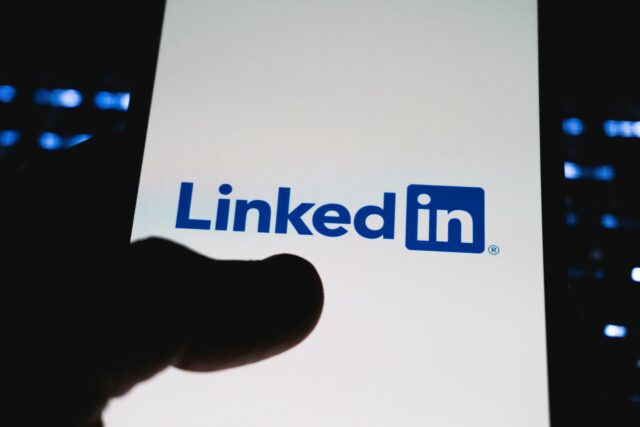Let’s be honest – job hunting can be brutal.
You’re putting yourself out there, investing hours in applications, interviews, and follow-ups, only to be met with… silence.
“we’ve gone in a different direction”
or the ever-vague “not quite the right fit.”
It’s easy to take that personally. But here’s the truth: most rejection isn’t about you at all.
When you understand how hiring processes works – and learn how to separate fact from opinion – you take back control of the job hunting process, your mindset, and your momentum.
Here’s how to keep perspective and stay productive when the job search starts to wear thin.

1. Remember: Most Feedback is Just Opinion
Didn’t get the job? Opinion.
Someone didn’t like your CV? Opinion.
Didn’t “fit” the culture? Still just an opinion.
It’s easy to treat every piece of feedback as gospel. But hiring decisions are made by people – with different preferences, assumptions, and their own individual needs. What one employer sees as “not quite right,” another might consider exactly what they need.
Of course, that doesn’t mean feedback has no value. It just means you need to treat it for what it is: a perspective, not the truth. Take what’s useful, leave what isn’t, and move on from it quickly.
As we often tell candidates: nobody’s really rejected. It’s just that someone else was selected.
2. Don’t Carry Rejection into the Next Interview
Rejection hurts. Especially when you’ve reached final stage and hear that familiar line – “we felt the other person was a slightly better fit.”
It’s frustrating because it feels personal, even when it isn’t. The danger is letting that disappointment bleed into the next conversation and your future job hunt.
We’ve seen it happen countless times. Someone who’s normally sharp, engaging, and full of energy lets that rejection stay with them and then walks into their next interview flat, hesitant or even defensive – and that’s exactly what the interviewer remembers.
The key is to reset after every “no.” Treat each opportunity as a clean slate. The only thing you take forward from rejection should be reflection: what went well, what could be stronger next time, and how to show up sharper.
Job search fatigue is real – but so is momentum. The faster you reset, the faster you recover it.
3. Separate What You Can Control from What You Can’t
The job search process has two categories: what you control and what you don’t.
You can control how well your CV tells your story, how much preparation you do before an interview, how you show up and present yourself in an interview, and how quickly you follow up afterwards.
You can’t control internal politics, changing budgets, or a company deciding to promote someone internally.
When you try to control what you can’t, frustration builds. When you focus on what you can, confidence grows.
It’s also worth remembering that most hiring decisions involve more moving parts than you realise. You’re not competing against a single person – you’re competing against timing, budgets, personalities, and sometimes luck. Play the long game. Your next opportunity might depend less on changing your performance, and more on catching the right business at the right time.

4. Manage Your Effort Strategically
Scrolling through job boards and applying to everything vaguely relevant can feel productive – but it’s not.
A smarter approach is to split your search into two clear lists.
List A: High-probability roles
-
You tick every box on the job description.
-
You can clearly demonstrate relevant experience the company is looking for.
-
The location and job level make sense and feel realistic.
-
You know who’s managing the hiring process, and you can follow up directly with them.
These are the applications worth investing in. Tailor your CV. Write a clear, specific cover letter. Include your portfolio. Make contact with the recruiter or internal talent partner.
Cover every aspect the company is looking for – and, if you can, go beyond them.
List B: The long shots
-
You meet some, but not all, of the criteria.
-
The job description is vague or overly broad. You’re not sure what the role actually entails.
-
There’s no direct contact to follow up with.
-
The commute or location is a stretch.
These are your “lottery ticket” applications. They’re worth a try – but don’t obsess over the outcome. If one lands, great. If not, it was a calculated gamble, not wasted effort.
By focusing 80% of your energy on List A and treating List B as a bonus, your job search becomes more efficient – and far less draining.
5. Reframe Rejection as Redirection
The easiest way to stay resilient is to change how you define rejection.
Rejection isn’t failure – it’s redirection to something better. Every “no” narrows your focus and sharpens your understanding of where you truly fit. It’s data, not defeat.
Maybe the company you thought you wanted isn’t as strong culturally as it appeared. Maybe the interview highlighted a skill gap you can now work on. Maybe it was simply the wrong timing.
Each experience refines your sense of what “right” actually looks like for you and your specific job hunt – and that’s invaluable insight.
6. Keep Your Energy Visible
One of the most overlooked aspects of interviewing is presence.
Attitude carries as much weight as experience. If you walk into the room with your shoulders down and your energy low, that’s the story you’re telling – before you’ve even said a word.
Yes, the market is competitive. Yes, job hunting can be exhausting. But leading with frustration or a lack of motivation will not win you any interest from hiring managers, or any job offers.
Energy, curiosity, and confidence are contagious. Show that you’re engaged, optimistic, and ready to make an impact in their business. The right employer will notice – because those are the signals of someone they’ll trust to lead, not just show up.
7. Accept That You Don’t Need Everyone’s “Yes”
You only need one offer.
It’s tempting to chase universal approval – to tweak your CV for every bit of feedback, to adjust your personality and attitude for every interviewer. But you don’t need everyone to like you. You just need one company to see what value you can bring and believe you’re the right fit.
Authenticity wins in the long term. When you stay true to your style, your values, and the type of environment you thrive in, you attract the opportunities that actually suit you – and avoid the ones that don’t.
Final Thought
Rejection is part of progress. The candidates who land the best roles aren’t the ones who never hear “no” – they’re the ones who know how to move forward when they do.
Stay objective. Stay consistent. Learn what you can, let go of what you can’t, and keep your momentum.
At We Do Group, we see the job hunting process from both sides – we know how tough it can be, but we also know what works and what doesn’t. Whether you’re refining your approach, repositioning your search, or building resilience after a setback, we can help you find the right fit – not just any fit.





